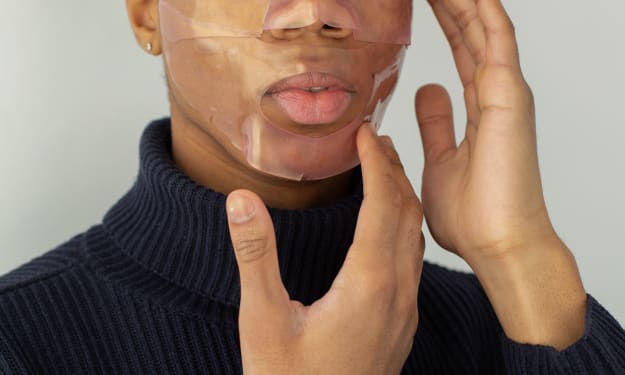Understanding Binge Eating Disorder: Causes, Symptoms, And Treatment Options
Binge eating

Introduction
Millions of people around the world suffer from binge eating disorder (BED), a severe and complicated mental health disease. It’s characterized by bouts of binge eating, followed by emotions of shame and guilt, and it happens again. People with BED do not engage in compensatory behaviors like purging or excessive exercise, in contrast to those with other eating disorders such as anorexia nervosa and bulimia nervosa. This article seeks to clarify binge eating disorder by exploring its origins, manifestations, and therapeutic approaches.
What is Binge Eating Disorder?
The clinical definition of binge eating disorder is recurrent bouts of eating excessive amounts of food in a short period of time while feeling out of control. People with BED frequently consume their meals at an accelerated rate, eat until they are physically uncomfortable, and then continue eating even when they are not hungry. Distress, remorse, or shame often accompany binge episodes, along with disgust or self-disgust. Binge eating disorder (BED) is a separate pattern of behavior that significantly harms a person’s physical and emotional well-being, so it should not be confused with occasional overeating.
Causes of Binge Eating Disorder
Binge eating disorders can have many different origins, including biological, social, and psychological reasons. Possible explanations and factors include the following:
- Researchers have found evidence that binge eating disorder may have a hereditary component. a. Those who have a close relative with BED or another mental health issue may be at a greater risk for acquiring BED themselves.
- Emotional and psychological variables can also play a crucial influence in the emergence of BED, which brings up point b. Binge eating disorder is commonly linked to issues including low self-esteem, a poor body image, depression, anxiety, and a history of trauma or abuse. In order to manage intense feelings or get over traumatic experiences, some people turn to food.
- Contrarily to popular belief, dieting and other forms of restrictive eating can actually play a role in the onset of binge eating disorder. Feelings of deprivation and powerlessness in relation to food may be triggered by attempts to restrict calories.
- Body dissatisfaction and the emergence of disordered eating behaviors, such as BED, may be influenced by societal pressures and excessive beauty standards. Cultural norms around what constitutes a healthy diet and how one should look can have a profound effect on an individual’s relationship with food.
- Binge eating disorder may be caused, in part, by chemical imbalances in the brain, specifically those of serotonin and dopamine, according to studies. Negative effects on mood, impulse control, and reward processing may result from these discrepancies.
Symptoms of Binge Eating Disorder
The key to successful treatment of binge eating disorder is early detection of the condition’s telltale signs. Some of the most common signs of BED are:
a. Binge eating disorder, in which individuals experience episodes of binge eating at least once per week for a minimum of three months.
b. Consuming huge quantities of food quickly despite feeling full.
c.During a binge, you may feel helpless and unable to stop eating.
d. Overeating to the point of physical distress.
a. Hiding one’s food or eating in private because of guilt or shame.
f. Feelings of regret, embarrassment, or disgust following a binge.
g. Dieting or other forms of restriction followed by bingeing on a regular basis.
h. Severe emotional anguish or functional impairment due to binge eating.

Health Consequences of Binge Eating Disorder
The effects of binge eating disorder on one’s body, mind, and relationships can be devastating. Possible side effects of BED on your health include:
a. Excessive weight gain and obesity, brought on by binge eating, raise the risk of many diseases and illnesses, including diabetes, heart disease, and several forms of cancer.
b. Low self-esteem, depression, anxiety, and other mental health conditions can be exacerbated by the shame, guilt, and contempt that accompany binge eating.
c. Social Isolation and Relationship Problems: People with BED may feel ashamed or guilty about their eating habits, which can cause them to withdraw from social situations and have trouble maintaining healthy relationships.
d. Issues with Your Body Binge eating has been linked to tummy troubles like bloating, gas and constipation. It can also cause trouble sleeping, exhaustion, and a lack of motivation.
Treatment for binge eating disorder is complicated by the fact that the problem frequently occurs alongside other mental health issues, including as depression, anxiety disorders, and substance addiction.
Treatment Options for Binge Eating Disorder
Binge eating disorder treatment is most effective when it takes a holistic approach to the patient’s mental, emotional, and behavioral needs. Some typical methods of treatment are as follows:
- Binge eating disorders can be effectively treated with psychotherapy, specifically cognitive-behavioral therapy (CBT). Eating disorder recovery is aided by CBT since it teaches people to recognise and question negative attitudes and assumptions. Interpersonal therapy (IPT) and dialectical behaviour therapy (DBT) are two more therapeutic approaches that may be helpful.
- Medications: fluoxetine (Prozac) and other selective serotonin reuptake inhibitors (SSRIs) have been used to treat binge eating disorder. Mood disorders, binge eating, and other co-occurring illnesses can all be treated with the right medicine. Medication is an option, but it should only be used in conjunction with therapy and under the supervision of a medical practitioner.
- Nutritional counselling: working with a lisence dietician can aid in the development of a healthy, long-term eating plan. Nutritional counselling can help people have a more positive relationship with food by teaching them about healthy eating habits, menu planning, and mindfulness while eating.
- Joining a support group or attending group therapy sessions with others who have suffered binge eating disorder can be a great way to get support, encouragement, and a sense of belonging from people who understand what you’re going through.
- Learning healthy coping mechanisms and stress management skills like meditation, exercise, and engaging in pleasurable activities will help minimize the temptation to participate in binge eating behaviors and put an end to the vicious cycle.
- It is crucial to treat any underlying mental health disorders that may be contributing to binge eating disorder. f. Addressing Co-occurring disorders. Long-term sobriety is more likely to result from integrated treatment programs that target both BED and co-occurring illnesses simultaneously.
Conclusion
People of all ages, both sexes and all walks of life can be affected by binge eating disorder, a serious mental health problem. Supporting and effectively caring for persons living with BED requires an understanding of the disorder’s origins, manifestations, and available treatments. Individuals with binge eating disorder can find relief, enhance their relationship with food, and achieve long-term recovery with early intervention, a holistic treatment strategy, and continuous support. Consultation with trained medical professionals who focus on eating disorders is crucial for the development of a personalized treatment strategy.
About the Creator
Abby blasius
I am a passionate content creator with a strong focus on health and wellness. While my educational background lies in a Bachelor of Accounting and Finance, it is my innate desire to help people feel good about themselves in mind, body&soul
Enjoyed the story? Support the Creator.
Subscribe for free to receive all their stories in your feed. You could also pledge your support or give them a one-off tip, letting them know you appreciate their work.






Comments
There are no comments for this story
Be the first to respond and start the conversation.